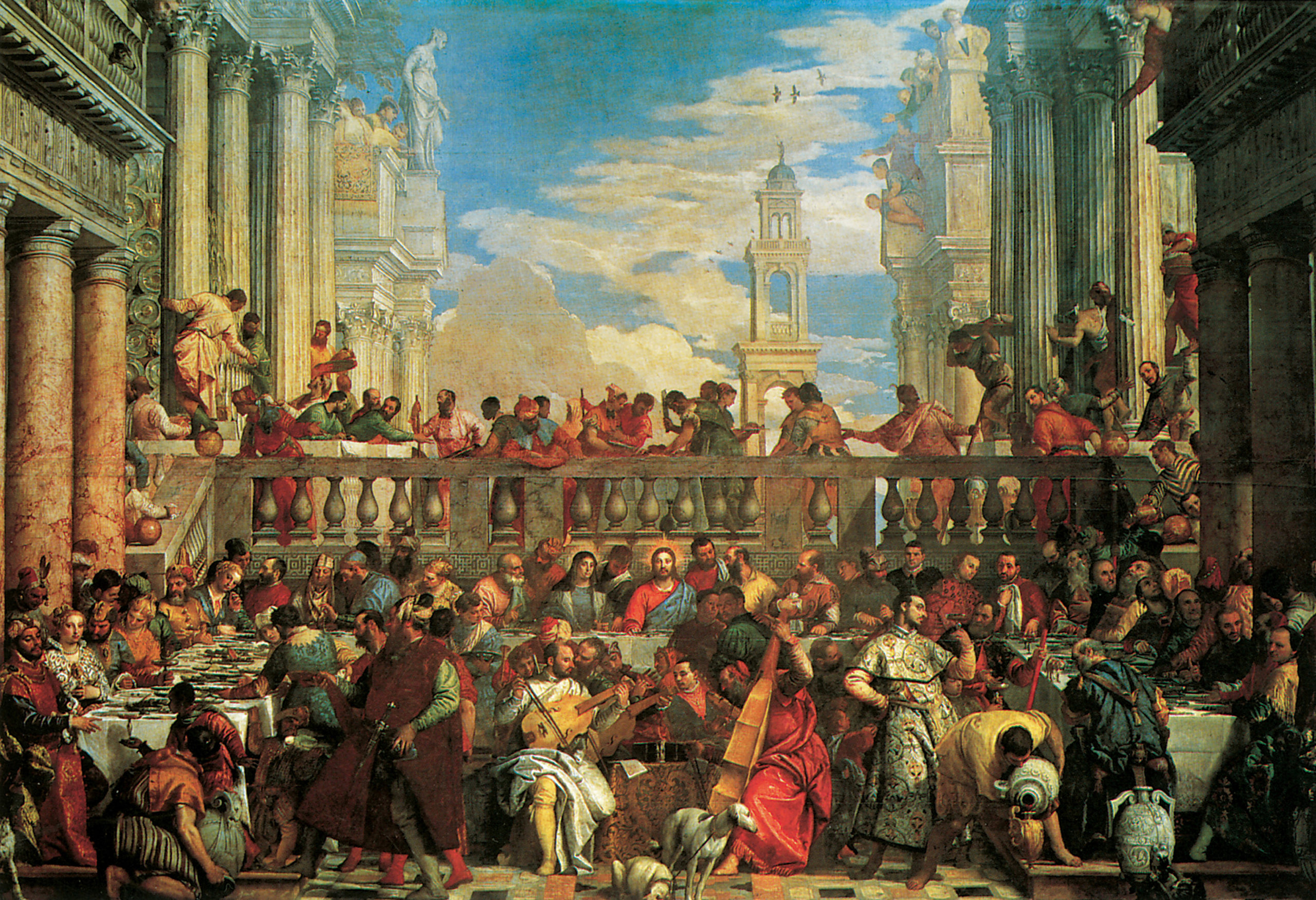From the Garden to the Garden: Tracing Our Sobremesa through the Bible

It seemed no one had intentions of leaving anytime soon. The crowd that night—and, in fact, every night we traveled through France—preferred to linger after dinner. I enjoyed this style of dining—no rush, no waiter pushing us out the door, just fellowship and conversation for hours. The Spanish culture calls this time of after-dinner lingering sobremesa. Sobremesa has no precise English translation, perhaps because there is no cultural equivalent. But literally translated it means “over the table.” Sobremesa allows food to digest and provides time to establish bonds, proving true that food connects people. Summarizing this concept well, a writer for a National Geographic article, “The Joy of Food,” recently stated, “Food is more than survival. With it we make friends, court lovers, and count our blessings.” In essence, sobremesa means connection, communion, and intimacy.
God has desired a time of sobremesa with us from the beginning. But eating the fruit in disobedience to God’s command got us into trouble. If we trace food through the Bible—from the forbidden fruit, to sacred feasts, to manna, to dietary laws, to Jesus as the “Bread of Life,” to the new fruit tree in the eternal city—we see that God uses food as object lessons to correct us, set us apart, redeem us, and promise us hope for unbroken communion, sobremesa, for eternity.
Sin: A Break in the Sobremesa
Imagine it: a beautiful garden, peaceful ambiance, worshipful, unfettered connection with God. The man and woman had free rein to eat from anything in the orchard, except from one tree. Simple rule, easy life. But the first couple disobeyed, and just one bite of the forbidden fruit shattered our connection with God and one another. Eating tainted us. We became slaves—slaves to sin, and, increasingly, slaves to others. We no longer ruled. Instead, others ruled us (Gen 3:1–19).
Yet a glimmer of hope arrived, and that hope began with a meal—one of roasted lamb with bitter herbs and unleavened bread. Through that meal God promised his people deliverance. Filled with grand meaning, this simple meal marked the beginning of two important sacred feasts, the celebration of Passover and the Feast of Unleavened Bread. With the blood of the lamb dripping down the doorposts, the Israelites ate, ready and expectant for salvation (Exod 12:1–17).
As God’s people wandered in the wilderness, every morning miracle food arrived. But it lasted only one day. Saved from Egypt, but not from the desert or from themselves, the Israelites received God’s gift of manna. White like coriander seed and tasting like wafers of honey, this bread of angels coming down from heaven was Israel’s source of life. Daily manna forced Israel to connect to God in hungry, daily dependence (Exod 16:21; Ps 78:25; 105:40).
Exile and Thirst
Fast forward to the time of the Babylonian Exile. The feet of God’s people trudged far from Israel, yet the hearts of some remained close to God. “Just vegetables and water, thank you very much,” Daniel told his Babylonian commander (Dan 1:8–13). Although living in a foreign land, Daniel and his friends still desired to serve God in accordance with Mosaic Law. They hungered to honor God more than they hungered for the choice food from the king’s table. By abstaining from delicacies, Daniel and his friends, Shadrach, Meshach, and Abednego, strengthened their kinship to each other and their faith to God—a faith that stood even in a fiery furnace (3:8–30).
But not every Israelite shared Daniel’s faith. Some demanded signs before belief. Expecting a warrior king instead of a humble servant, they argued with Jesus, “Give us manna like that from Moses!” Despite hundreds of years of exile, strife, and then oppression from Rome, Israel lacked spiritual hunger for God. They looked only for temporary food for their stomachs, not food for their souls. But God has always prioritized spiritual belief over physical sight (Deut 8:3; John 6:30–31).
God wanted to give his people lasting food—“bread coming down from heaven”—food that eternally satisfies. But rejected by the Pharisees, Jesus, the everlasting manna, dined with tax collectors and sinners instead. These people truly knew their lowly position. Consequently, they had a hunger for more from life than shallow ritual and religion. By eating bread and drinking wine, Jesus connected with hungry souls (John 6:33; Mark 2:13–17).
Although the people were enslaved to sin, their hope had arrived. The Savior sat, walked, and talked in their midst, but they searched with blinded eyes. The bleating cry of Passover lambs filled Jerusalem as Israel made preparations for the Feast of Unleavened Bread. Thousands of years had passed since the first sacred feasts, but the true Passover Lamb sat without pomp with only his disciples. Jesus told them, “Take and eat; this is my body . . . Drink from it [the cup], all of you. This is my blood of the covenant” (Matt 26:26–28). They shared a final meal before the Passover sacrifice, which prefigured his own death. Consider the spiritual metaphors related to his literal body and blood:
They crowned him with thorns.
The blood of the Lamb flowed.They scourged his body.
The blood of the Lamb flowed.They pierced his hands and feet.
The blood of the Lamb flowed.The sinless, unleavened Bread was broken.
The Passover Lamb’s blood was spilled.
Salvation: Sobremesa Renewed
God’s salvation of Israel in Egypt started with a meal—one of roasted lamb with bitter herbs and unleavened bread. God saved the Israelites from physical death, later commemorated by a Passover lamb. On Calvary, the ultimate Passover Lamb saved all who would believe from spiritual death. In the New Covenant, Christ is the Bread of Life. With a meal, God had rescued Israel from Egypt; and with the everlasting bread, God rescued those who believe: “This is my body given for you; do this in remembrance of me” (Luke 22:19).
Jesus had conquered their sin on the cross, yet his disciples had returned to their old lives. So Christ prepared them a meal. The smell of grilled fish and bread greeted them along the shoreline of the Sea of Galilee. The Risen Lord sought to establish his disciples in right relationship with him. So after breakfast, during sobremesa, Jesus reinstated Simon Peter with a mission: to feed the Lord’s sheep with spiritual food that lasts (John 21:9–17).
Last things: The Coming Unbroken Sobremesa
Adam and Eve shattered humanity’s original sobremesa with God. From the forbidden fruit, to sacred feasts, to manna, to dietary laws, to Jesus as the “Bread of Life,” to “Take, eat; for this is my body”—God has used food as object lessons that show how he corrects us, sets us apart, and redeems us. We live in the tension of the now, but not yet, saved from our sin, but not saved from the sin of the world. We long for the new fruit tree in the eternal city, where God promises us hope for unbroken communion and intimacy—sobremesa—for eternity (Rev 22:2–4). In the new garden we will linger with him forever. But for now, we, like Peter, have a mission: feed the Lord’s sheep and enjoy the sobremesa until he comes (Matt 28:19–20).
About the Contributors

Karla D. Zazueta
The author of Ministry for Hispanic Introverts, Karla Zazueta (MACL, 2014) is an architect-turned-ministry-leader serving at Stonebriar Community Church (Spanish Ministries) in Frisco, Texas.

